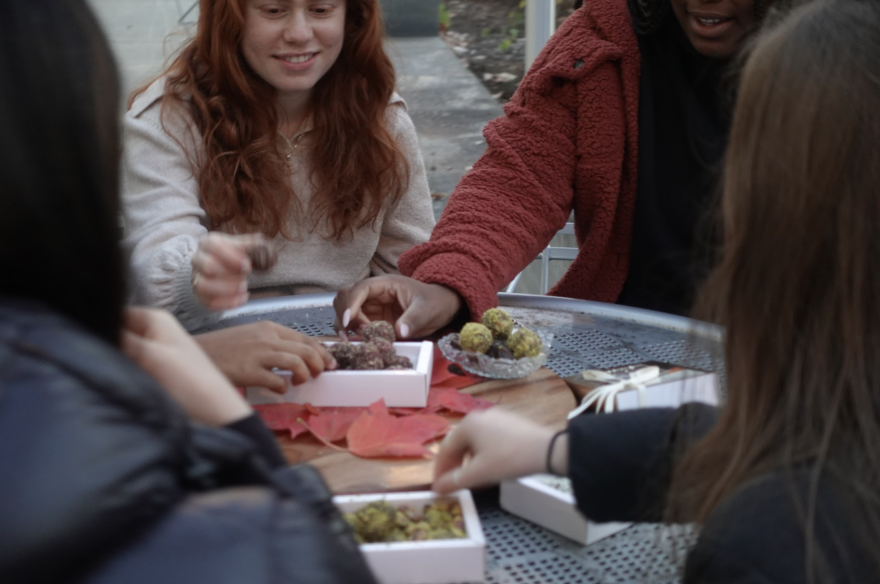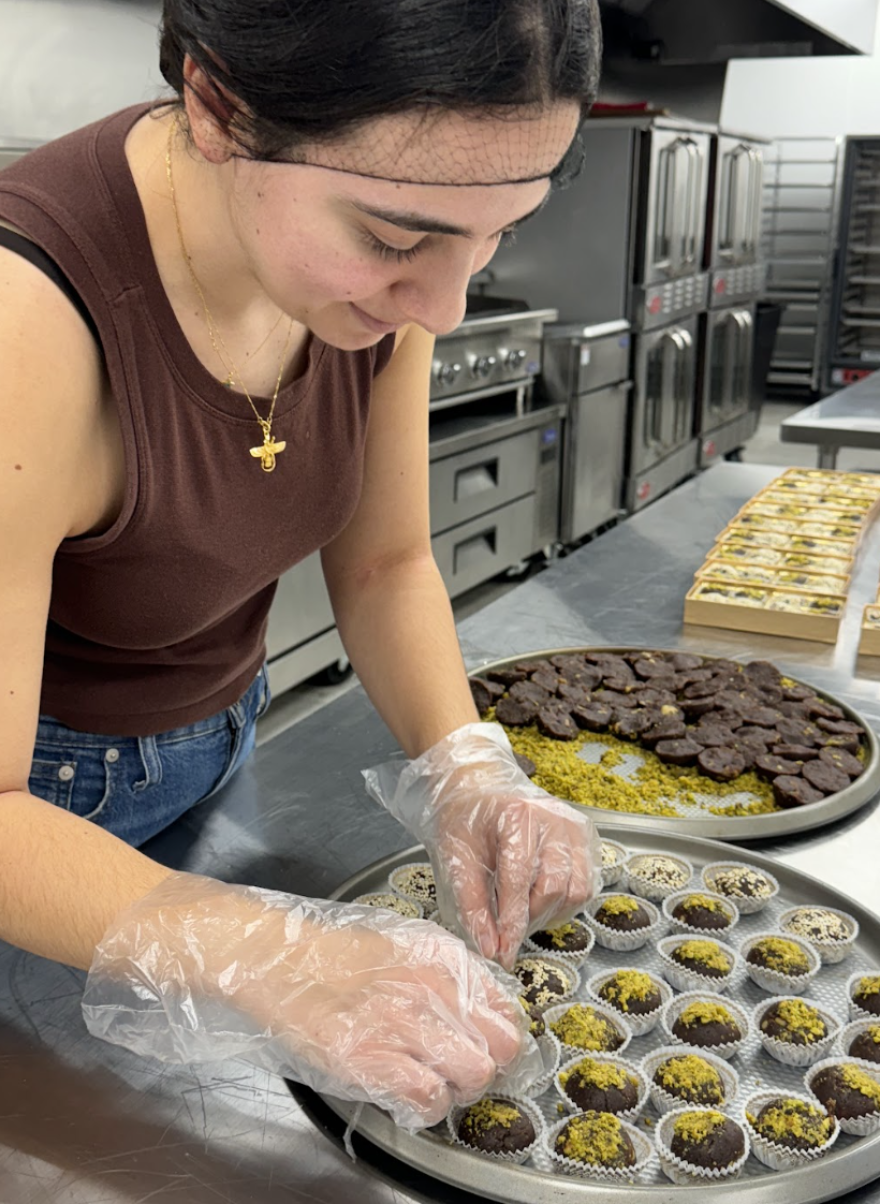Armita Jamshidi, a junior at Cornell University studying women’s health and computer science, has a few things on her mind.
"I actually have an exam on Tuesday," she said.
But for Jamshidi, unlike her peers, the exam might be one of the less stressful things going on in her life. That’s because the 20-year-old recently launched a full-fledged business, a project that emerged while participating in a women's entrepreneurship program at Cornell.

“I completely accidentally stumbled upon it, and I didn't really know what it was,” she said. “But I applied, and so I did the program, and I got more and more interested — especially as we started doing a lot of customer discovery and figuring out what a really big problem is that we want to try to solve.”
As Jamshidi delved deeper into the program, her academic curiosity began to intersect with a longstanding personal struggle that had reached a critical turning point.
"At the beginning of sophomore year, my period cramps got so bad that I fell out of consciousness, and I went to the emergency room," she said.
This frightening health ordeal propelled Jamshidi to create Aunt Flo’s Kitchen, a venture offering snacks infused with ingredients that she says address menstrual pain, drawing upon Iranian traditional medicine. Melding her health struggles with her cultural roots, Jamshidi’s business takes a contemporary approach to ancient Iranian healing traditions.

"Cornell's been really, really helpful. Their Entrepreneurship Center is growing really fast. It's great to be in that environment," she said.
Inspired by her Iranian grandmother’s recipes, Jamshidi's snacks, called Cramp Bites, are crafted from what she says are healing ingredients, such as dates, walnuts, and tahini, along with spices like saffron and cinnamon.
"I do believe that menstrual care should be accessible to everyone," she said. "There's a lot of barriers, so I'm really trying my best to grow and also tackle those barriers."
But Aunt Flo’s Kitchen is more than just a business venture; it's also a platform for social change. Jamshidi envisions that one day, it can be a means to provide employment opportunities for refugees from the Middle East.
"Ultimately, I want to sponsor people from the Middle East to come to the U.S. if they want to and provide well-paying jobs for them to help make the product — and also work on the business side," she said.
Currently available in six retailers in Ithaca and online, Jamshidi's next goal is to have Aunt Flo’s Kitchen products carried at larger chains like Wegmans, thereby increasing accessibility to what she says is natural menstrual pain relief.
She's also committed to making a social impact, offering free packs of her products through the Gender Equity Resource Center at Cornell, furthering her mission to enhance accessibility to menstrual care and promote discussions on menstrual health.

As she navigates the complexities of entrepreneurship and academia, Jamshidi remains driven by a vision that extends beyond business success.
"You hear a lot about traditional Chinese medicine ... but not a lot about Iranian traditional medicine," she said.
Jamshidi hopes that Aunt Flo’s Kitchen combines tradition with innovation to provide relief to her customers and highlight the role of entrepreneurship in driving positive change.
But before she finds a way to solve a stigmatized health problem, Jamshidi needs to find a way to study for her upcoming exam.



